An epic story of the forgotten women who changed the world through the love of their sport
Social media is filled with images of women’s basketball players showcasing their athletic prowess, along with their off-court ventures. NBA players are celebrating the success of their female counterparts while sponsors and sports fans are more interested than ever. Women athletes are using their platforms to become influencers, build their careers and battle for social justice while college women’s basketball coaches are commanding multi-million dollar contracts.
But, it hasn’t always been this way.
For years, society actively discouraged girls and women from experiencing the advantages of sports.
But even though women of the 1950s were generally expected to fit into restrictive roles, there were communities that needed women to work hard for their families’ survival … rural areas, black communities and industrial regions. Those girls and women were not only encouraged to work hard, but to play sports and compete to be the best.
In the small towns of West Texas, girls were encouraged to play sports and it became a vital part of those communities. They could even dream of playing beyond high school because they could see it.
Plainview, Texas was home to one of the earliest, most innovative women’s basketball programs. Wayland Baptist College offered scholarships in the 1950s. Local business owners Claude and Wilda Hutcherson sponsored the team and provided airplane service for the team to travel across the country and internationally to compete. The “Flying Queens” won ten AAU national championships and were the first college program to prove that women could compete for championships if provided the resources.
Pockets of areas around the country provided similar opportunities that gave young sporty girls hope – places like Tennessee, Iowa and Pennsylvania. Those AAU programs provided the foundation for intercollegiate and Olympic women’s basketball.
IF NOT FOR THEM, there was no hope – no examples this was possible.
Women were ready for intercollegiate competition. But, when the Executive Director of the NCAA slammed the door on that idea declaring they had absolutely no interest in women’s sports, women had to take matters into their own hands.
As women battled for equal opportunities in society in the 1970s, those who had experience playing sports through the 1950s and 60s were uniquely positioned to break down barriers and provide leadership in that critical time.
This is the story of those women – the forgotten women who changed the world through the love of their sport.
IF NOT FOR THEM, there would not be the opportunities there are today for girls and women in sports.
There are significant milestones through the journey, but it’s the personal accounts of struggle, heart break, determination, cooperation and triumph that tell the real story.
Many don’t know that the first National Championship for college women’s basketball originated because one woman – Carol Eckman — was frustrated that her elite level college team had no opportunity for a fair national competition, so she hosted it herself.
If not for them …
When the NCAA wanted absolutely nothing to do with women, a fierce and determined group of women met to form their own organization, the AIAW, to nurture collegiate women’s sports from the ground up.
If not for them …
When the NCAA realized that Title IX of the Education Amendment applied to sports, all hell broke loose. They believed it would ruin men’s sports and raised millions of dollars to weaken or eliminate Title IX. But women like Christine Grant, Charlotte West and Donna Lopiano, who had themselves played sports domestically and internationally in the 1950s and 60s, fought back, testified before Congress and asserted themselves when the Title IX regulations were written.
If not for them …
As the AIAW grew, championships were held and rivalries emerged. An unlikely rivalry between Immaculata, a small Catholic school in Pennsylvania, and Queens College, a city college in New York, caught the attention of the New York City media. It led to the first college women’s basketball game at Madison Square Garden where over 12,000 people attended in 1975, Helen Reddy’s “I Am Woman” blared on the loud speakers and a cultural shift began to occur.
If not for them …
Riding on the wave of women playing internationally through AAU competition, the Olympics hosted women’s basketball for the first time in 1976. The US women did not initially qualify and had to rely on a ‘win or go home’ pre-Olympic tournament just weeks before the Games. When the US women won it, the US Olympic organization did not have plans, nor a budget, to send them to the Olympics in Montreal. If not for the creativity and resourcefulness of the US coaching staff of Billie Moore, Sue Gunter and Jeanne Rowlands, the US women’s basketball team would not have competed in that first Olympics, won a silver medal or have been showcased on network television in homes throughout the nation.
If not for them …
With their history of playing basketball in AAU competition in the 1950s and 60s in the South, women’s college programs in that region emerged as national leaders. Margaret Wade, Pat Summitt, Jody Conradt, Sue Gunter, and Marsha Sharp all have incredible stories of developing successful programs that would forever change the sport.
Additionally, a platinum blonde, mink coat wearing, show stopping coach named Sonja Hogg created a blue print for all phases of an elite level program – national championships, sell-out crowds, big budget recruiting, high level university support and audacious fashion. Hogg assembled a coaching staff, a team and the support of a university president in a magical combination that programs still try to duplicate. Sonja Hogg was an influencer decades before social media.
Along the way, the NCAA started to take note of the rise of women’s sports. In 1981, Sonja Hogg and Louisiana Tech won the last AIAW Women’s Basketball National Championship before the NCAA unceremoniously took over the sport.
In 1982, many women’s programs joined the NCAA while some hung on to the AIAW. Each organization hosted a national championship that season. There were two National Women’s Basketball Championships that year.
Sonja Hogg and Louisiana Tech beat pioneering African-American Coach C. Vivian Stringer and Cheyney State in the first NCAA Women’s Basketball Championship while former Immaculata star, Theresa Shank Grentz and Rutgers beat future Naismith Basketball Hall of Famer Jody Conradt and the University of Texas in the final AIAW Championship.
In 2021, social media and television is filled with images of women playing sports, but it hasn’t always been this way.
And it wouldn’t be that way now, IF NOT FOR THEM.
Veteran women’s basketball broadcaster, Brenda VanLengen, is leading the “IF NOT FOR THEM” documentary project with advisement from a diverse team of women’s basketball enthusiasts. VanLengen has announced over 1,200 women’s basketball games on ESPN, Fox Sports and other networks throughout her 26-year broadcasting career and has gained the respect and trust of generations of coaches and athletes. She coached basketball at the high school and college levels after twice earning Academic All-American honors playing basketball at the University of Nebraska-Kearney, all of which would not have been possible IF NOT FOR THEM.
“This is personal for me,” says VanLengen. “Because of these courageous women who broke barriers and changed social norms, a path was created for girls like me to be able to play sports in high school and college, then pursue a career in sports broadcasting because of the doors that had been opened.”
“My grandmother played basketball in high school in the 1920s, but my Mom and aunts never had those opportunities in the 50s and 60s. I was six years old when Title IX passed and my high school added girls basketball three years later, so I was able to play. My senior year of high school in 1983, I wrote an essay on the “Progression of Women’s Basketball” (that is still on my desk) and have immersed myself in the history of the game throughout my life. I am a bridge between the courageous women who built the game and the young women who now enjoy all of the benefits of their work. It is my honor to tell their stories.”
This docu-series will focus on the compelling, personal stories of the women who built the foundation of collegiate women’s basketball. There are noteworthy milestones along the path, but the personal accounts tell the stories of barriers they broke down, social norms they affected and the opportunities they created leading to the expectations we now have for girls and women in sports.
VanLengen has conducted hundreds of hours of video conference and telephone interviews to gather stories from coaches, players, administrators and media who lived through growth of the game in the 1950s, 60s and 70s. Through seed funding, Real Media KC used RED Monstro 8K cameras to record interviews with legends such as Sonja Hogg, Jody Conradt, Marsha Sharp, Wayland Baptist All-Americans and others in a format that is accepted by distribution platforms such as Netflix, Amazon and ESPN. To complete the project, funds are needed to conduct in-person studio interviews of other legendary coaches, their players and families, and edit, produce and distribute the series. Historic photos and videos are being acquired from colleges, sports organizations, historical societies and individuals to create the visual imagery to enhance the stories.
To produce a potential 10-episode series in the highest quality for extensive distribution, a professional fundraising effort to raise $1 million dollars is underway. The series will be produced under the guidance and fiscal sponsorship of the nonprofit agency, Do Good Productions. Do Good Productions is operated by a group of volunteers including Academy Award winning producer, Kevin Willmott. The mission of Do Good Productions is to produce and disseminate films that raise the public’s awareness with respect to important issues facing both local and regional communities as well as our nation.
To support this project, you can make a tax deductible contribution of any amount to “If Not For Them,” a Do Good Production by going to the “Join The Team” page at www.IfNotForThem.com and choose “Donate Now.”
If you have questions, contact us.
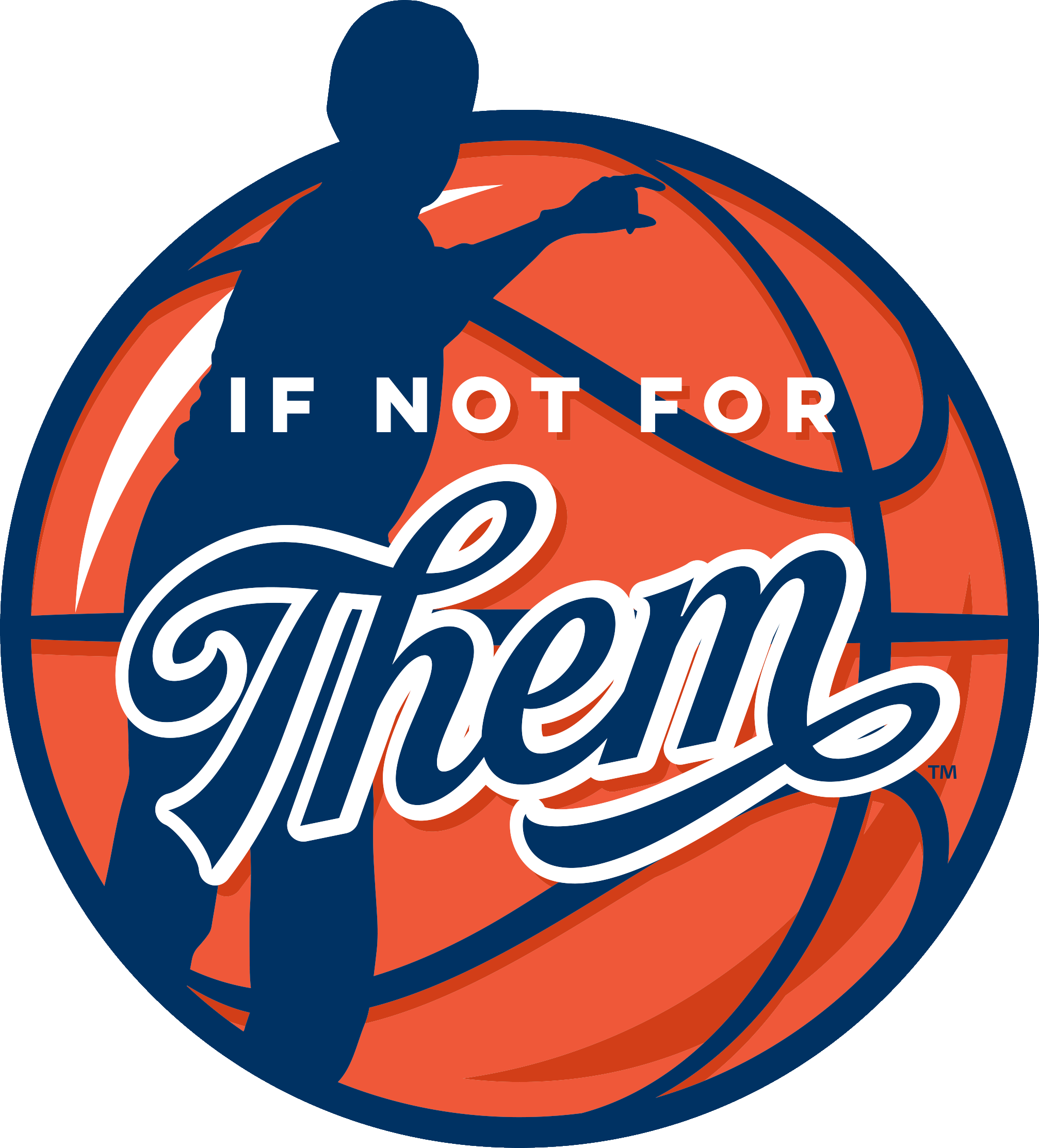
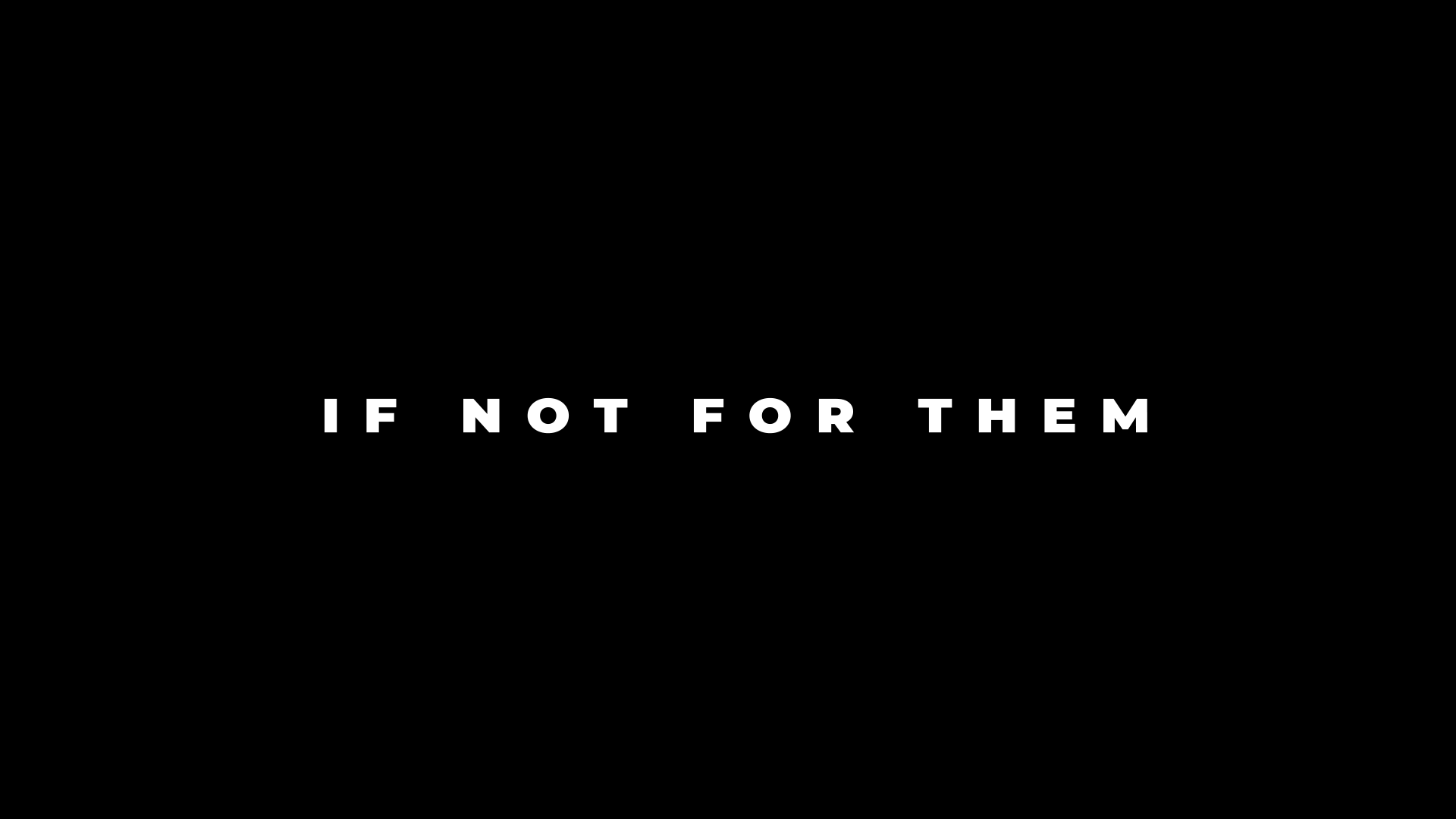
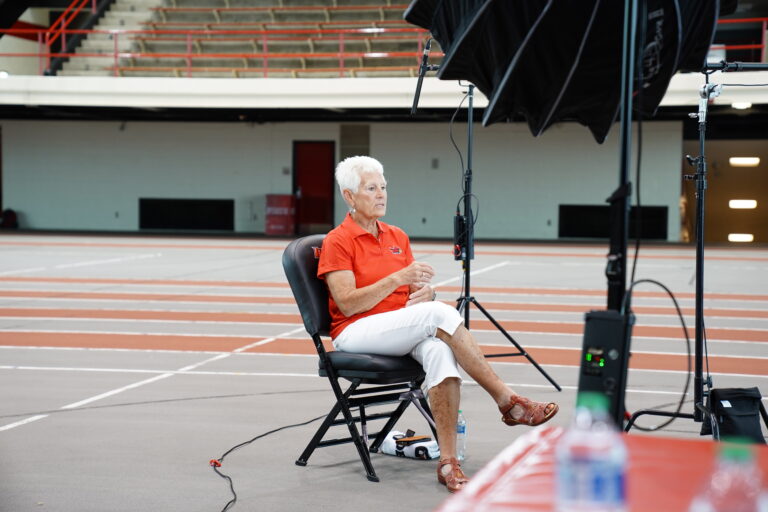

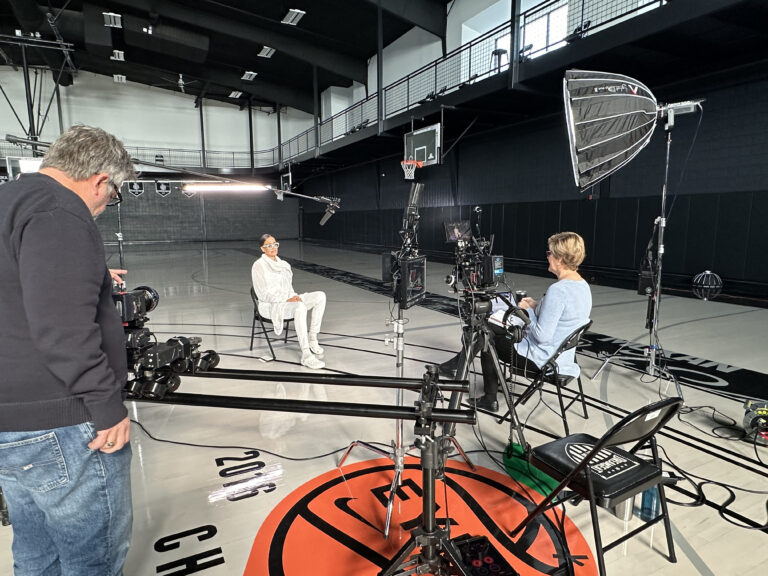
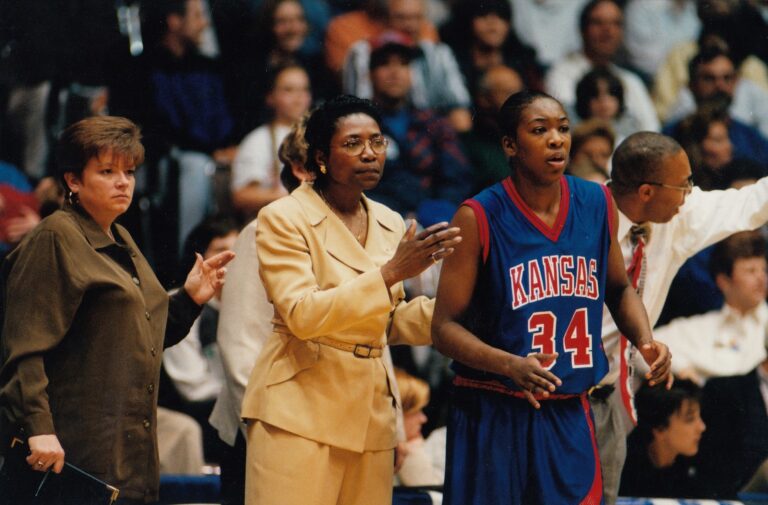
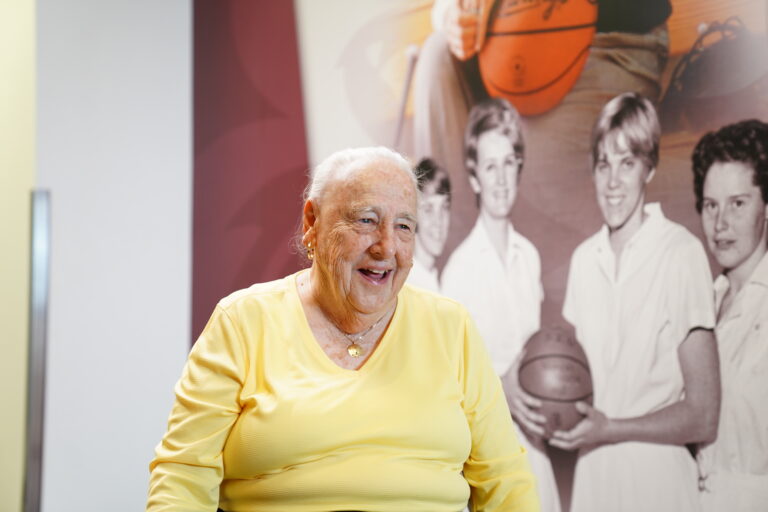
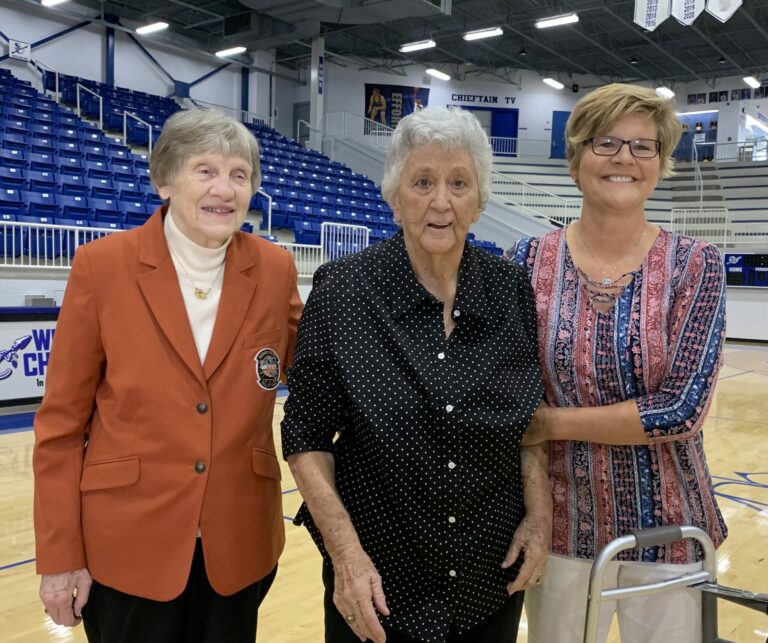
I was able to retire from a job that was the greatest career every. Athletic Equipment Manager one of the first if not the first for Women’s Basketball that travel and purchase and packed for road games and home. I mention this not to talked about my career but the two amazing pioneers of Womens Basketball and Women’s sports . Kay Yow, Nora Lynn Finch if not for them there would never had been a job for women in Athletic Equipment for Women’s Basketball and I think it would be safe to say any position for women in the game whether it was, Athletic Equipment, Sports Medicine, Media relations, Video. I know they fought and pushed for all those positions to be women. Which brought about women having the same services in every area. For at that time most guys just wasn’t interested in serving the women’s team.
There are so many of women out there in every part of the country that push for more for women I pray we never forget those.
Every Division and High School. For instance Rita Wiggs that became Head Coach and then AD at Methodist College and was a great High School player. Susan Yow, Nancy Boller Moser, Janice Shelton from ETSU. This only to name a few. Just a few thoughts! I know you all probably have so many but just wanted to throw these names out there. Kay Yow and Nora Lynn are definitely two if not for them especially. Hope this is a grea project. A difficult one because of all the great women who moved the game and women’s Basketball forward. Think of Coach Yow who work and push just to get a game on TV. So good fortune to you.
Thank you so much, Brenda! Great to hear from you! I just had an amazing conversation with Nora Lynn Finch yesterday and learned so much about hers and Kay Yow’s contributions that I didn’t know and that women’s sports enthusiasts need to know. I’m so glad that you and so many others have been able to have the careers they have because of those pioneers … If Not For Them!
Sounds wonderful, hopefully you can give some coverage to Div II, III and the NAIA, and the ABL in its beginning too.
Best of luck!
Thanks, Jan! It’s such a vast history that we are primarily focusing on the 1970s with this documentary series — in the pre-AIAW and AIAW years and the implementation of Title IX. In addition, some of those great stories in the couple of decades leading up to the 1970s. We will do all we can to include all the stories we can.
Have lots to say on this subject but let’s start with the fact that I Coached Lin Dunn when she was in Appleby JR High .I came to Florence in 1950 from Mississippi to teach physical Education one year , get rich and leave seeking a Basketball team I could play on. I wasn’t even that good but having played on my Starkville High School Basketball team , I had a love for the game.. came to Al and found out they wouldn’t let girls play. That sparked in me a desire to do something about it.I started calling the STate Athletic Asso and got the run around…..They told me it was illegal for girls to play competitive sports in Al schools but I could have independent teams.. I did just that after having a great intramural program in all the sports — Volleyball and track and softball too. I was most interested in the Basketball. Had to take my 7-9 graders to Tn to see a real game before we even started… I ended up having traveling teams as well as the RecDept having a league for youth and women.. I taught and Coached from 1950 to 1975 independent teams. Finally in 1975 we were allowed to have a school team.. in 1967 we were allowed to play School Volleyball..1968 they added Track… and lifetime sports like Archery and Badminton. They did all that so they wouldn’t have to give in to Basketball. The men had “the good ole boys” Club” and didn’t want to give in to girls using “their” court. This is just a tast of what I went thru. There’s more. You can’t use my court… you’ll take money away from us cause you can’t make money with girls—-you can’t be called Coach. Your working with girls—- and more.. anyway Lin moved to Tn in High school and I guess you know her story…. This isn’t all but it’s a tast of all I went thru to have a guality program for girls. Thanks for , hopefully, you reading all this….. Coach Noona Kennard. 1127 Military Rd, Florence,Al 35630…. 256-366-3437…
Thank you, Coach Kennard! So great to hear from you and speak with you on the phone. Thank you for all you have given to girls and women in sports over the years!
Thank you for doing this project. I actually did my undergraduate thesis on the history of womens basketball in kansas. I played at kansas wesleyan and was a ga at kstate. I interviewed ginny bevan the pioneer at kansas wesleyan and worked for marion washington a few summers. Lots of rich history from naia to the highest levels here in kansas. Thanks for doing this project.
Thank you for visiting our site and sharing your story! I’d love to see your thesis if you still have it. Send to ifnotforthem@gmail.com if you still have it!